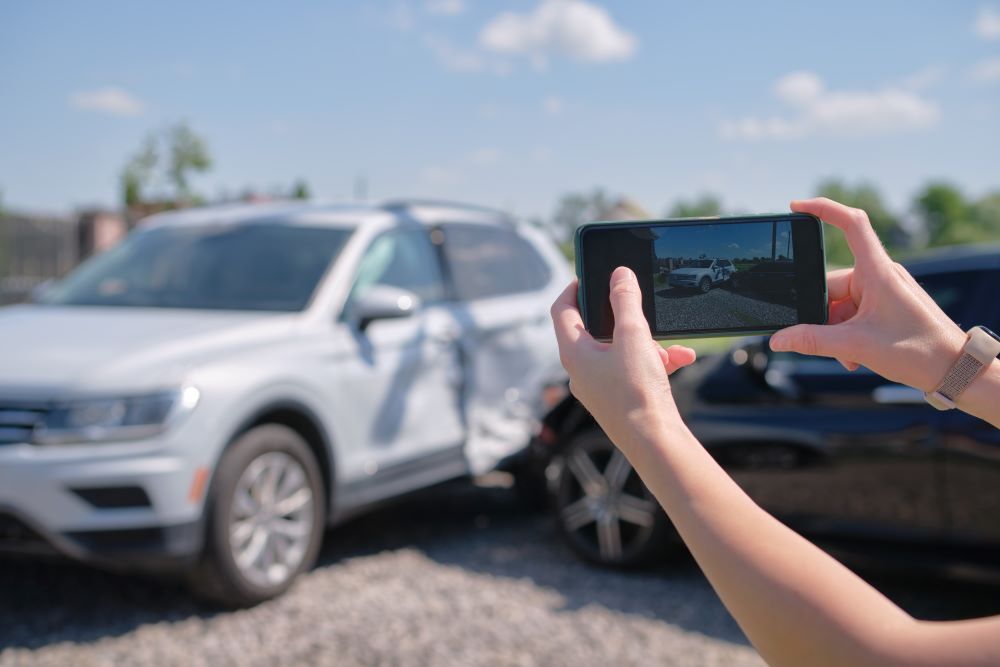In the aftermath of an auto accident, many North Carolinians find themselves scrambling to understand their rights, responsibilities, and the steps they must undertake to ensure their well-being. The collection and preservation of evidence is critical if you’re considering filing a personal injury claim in North Carolina. Evidence in a motor vehicle accident can help you prove the circumstances of the accident, liability, and the extent of the damages.
While this article covers some of the basics, each accident can be different and we recommend contacting the auto accident team here at Paynter Law as soon as possible to protect your rights.
Collecting Evidence At The Scene Of The Accident
- Police Reports: A crucial first step in collecting evidence is calling the police immediately after the accident, as is required in North Carolina for accidents causing death, injury, or property damage. The police report typically includes details about the accident, such as date, time, location, involved parties, witness statements, and the officer’s initial determination of fault. Make sure to obtain a copy of this report.
- Photographs and Videos: Photographs and videos provide tangible proof of the accident scene. They should include vehicle damage, skid marks, traffic signs, road conditions, weather, and any visible injuries. A comprehensive photographic record can be a persuasive tool when it comes to determining the cause of the accident.
- Witness Statements: Witnesses can provide an unbiased perspective of the accident, potentially strengthening your case. Ensure to obtain contact information from any eyewitnesses at the scene. Their testimonies can play a vital role in corroborating your account of events.
Gathering Post-Accident Evidence
- Medical Records: Medical records are fundamental evidence in personal injury claims as they demonstrate the extent of your injuries, the treatment required, and the associated costs. Make sure to keep copies of all medical reports, prescriptions, therapy notes, and bills. Even if your injury is minor or you don’t feel hurt immediately, it’s important to see a medical professional – some injuries don’t show up until hours or days after the accident.
- Vehicle Damage Reports: Obtain an assessment of your vehicle’s damage from a professional mechanic. This report can help you claim compensation for property damage.
- Wage Loss Documentation: If your injuries lead to time off work, you may be able to claim lost wages. Collect all relevant documents from your employer that show your regular wages and the time you missed.
- Insurance Communications: Maintain records of all communications with insurance companies, including your own insurer and the other party’s, if applicable.
Preserving Evidence
Once the relevant evidence has been collected, it is critical to ensure its preservation. You must:
- Keep Physical Evidence Safe: Any physical evidence, such as damaged items from the car, should be stored safely and securely to prevent further damage.
- Maintain Digital Records: Keep all digital evidence like photographs, videos, emails, and digital medical records in a secure, accessible location. Back them up in multiple places if possible.
- Store Documents Properly: Important documents like medical bills, police reports, and wage loss records should be kept in a safe and secure place. Make copies as necessary.
Contact Our North Carolina Auto Accident Attorneys
Evidence plays a pivotal role in the outcome of a personal injury claim following an auto accident in North Carolina, and knowing what to collect and how to preserve it can make a significant difference in the success of your claim.
If you’ve been in an auto accident in North Carolina, contact our team here at Paynter Law for a confidential, no-obligation consultation today. We only get paid if we win your case – we know the process can be complex and emotionally draining, and it’s important to have knowledge and experience on your side.

